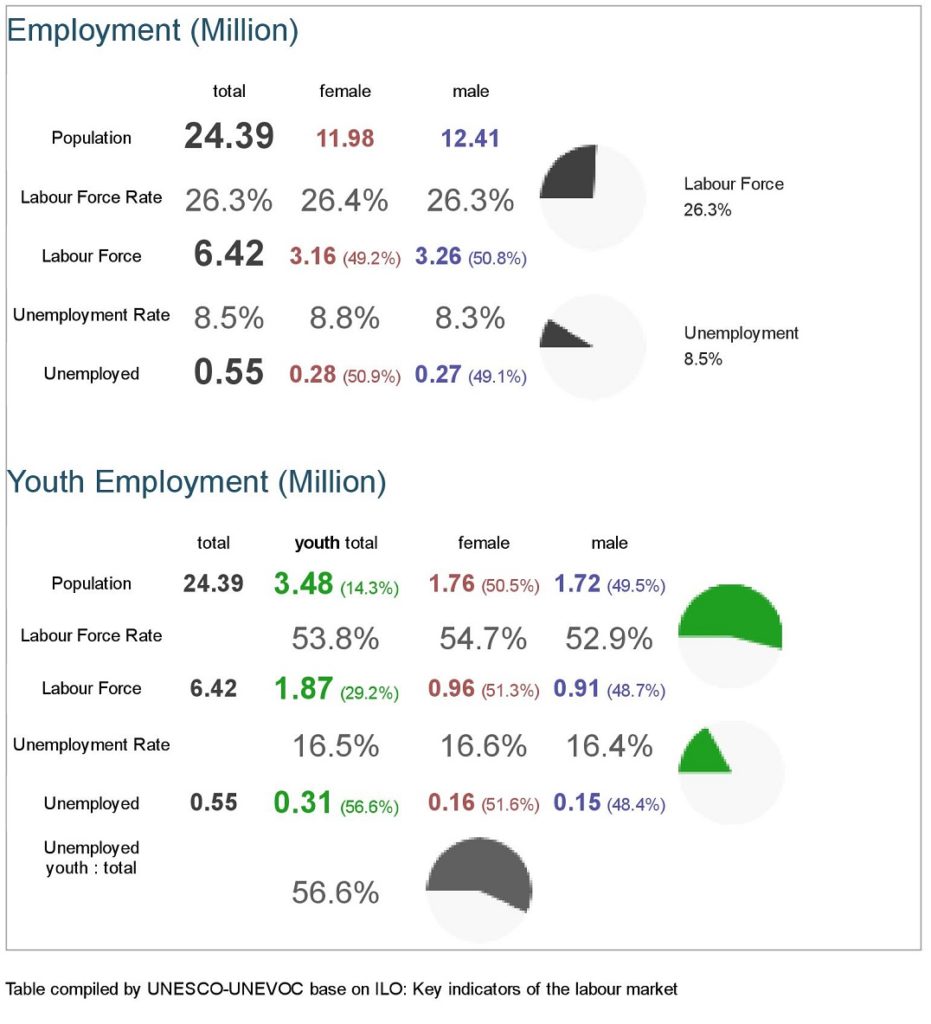Challenges and opportunities of the Technical Vocational Education and Training (TVET) system in Ghana
Ghana is currently in the process to reform the national Technical Vocational Education and Training (TVET) system with the aim to form highly skilled local workforces able to support the development of local industry sectors and contribute to a sustainable growth of the Country.
With a population of over 26 million people and a GDP of 1,550USD per capita, Ghana has a 56.6% unemployment rate among the youth population. This situation is partially due to a difficult transition for young people from the school to the job market. At the same time, the Country urgently needs to form a local skilled workforce, able to respond to the increasing demand of new infrastructures, including an efficient public transport system, affordable and safe housing, and reliable energy supply.
In 2006, The Council for Technical and Vocational Education and Training (COTVET) has been established in Ghana, with the aim to reform the TVET system and contribute to the development of a productive workforce by linking the education system to the needs of the economy.
According to COTVET, one of the greatest challenges that TVET in Ghana is currently facing is to improve the perception and recognition among the population. Most people have dreams of pursuing academic careers to become doctors, lawyers, or accountants. Trades like auto mechanics, hairdressing, and carpentry are considered the poor alternative to university education.
As a consequence, university graduates spend an average of 2 to 5 years looking for non-existent employment, as local universities produce more graduates than the job market can absorb. Whereas, many national industries, like the emerging oil and gas sector, have a real and growing demand for skilled workers that, in the absence of local skilled workforces, has to be filled by foreign labour.
Another significant challenge is the need to reform the national TVET system. TVET related policies promoted by COTVET aim to establish:
- Industry-led and demand driven Competency-based training (CBT), aimed to promote equitable access, opportunities and career pathways for students and employees to develop their vocational, technical and generic skills; and
- Workplace Experience Learning (WEL) to ensure that the theoretical and practical aspects of the CBT model are integrated and adequately prepare students for the world of work.
Other challenges are presented by limited equipment, lack of regular training for trainers, needs of coordination between TVET and Industry, lack of a clear qualification framework.
Sustainable Skills CEO, Nigel Carpenter, recently visited Ghana to attend the Sustaining Competitive and Responsible Enterprises (SCORE) Convention organised in Accra by the International Labour Organisation (ILO), and explore potential opportunities for our organisation to support Ghana with the national TVET reform.
Sources:

